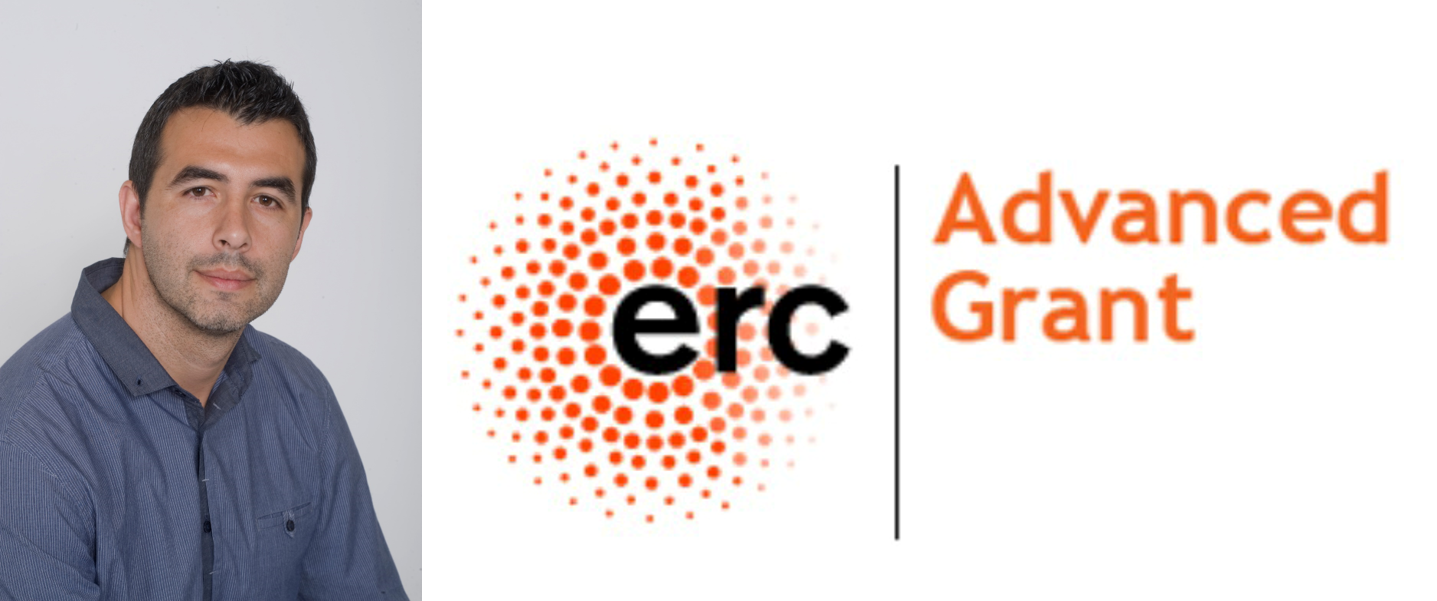Thursday, 22 April 2021
ICREA Prof. Daniel Maspoch awarded an ERC Advanced Grant for his project CLIPOFF-CHEM
Among the projects assigned this year a European Research Council (ERC) Advanced Grant is CLIPOFF-CHEM, which will be led by ICREA Prof. Daniel Maspoch, group head at the ICN2.This project aims to develop a highly innovative top-down synthesis technique, based on the control at molecular level of the breaking of preformed molecules and structures.

ICREA Prof. Daniel Maspoch, leader of the ICN2 Supramolecular NanoChemistry and Materials group has obtained a grant from the European Research Council (ERC) of over 2,5 million euros. The evaluating committee has highlighted that Prof. Maspoch has published high-impact research in the field of Metal-Organic Frameworks (MOFs), which are a class of materials characterized by high porosity. This is the third ERC grant he has received, after a Consolidator Grant in 2014 for his project InanoMOF, with which he developed new methodologies to synthesise nanocomposites from MOFs, and a Proof of Concept in 2019 to transfer the results to industrial applications related to water purification.
This year, 2678 proposals were submitted to the European Research Council for this grant, of which 209 were accepted. Eleven of these grants have been conferred to Spanish projects, with five assigned to institutes in Catalonia: the Centre for Genomic Regulation (CRG), the Pompeu Fabra University (UPF), the Autonomous University of Barcelona (UAB), which received two, and the ICN2 (Prof. Maspoch).
The ERC awards the Advanced Grants to projects with an innovative nature, a potential high impact in its research field and an excellent scientific outlook. The principal investigator is required to be excellent in terms of originality and significance of their contributions to science. Prof. Maspoch is group leader at the ICN2 since 2011 and has authored and co-authored over 160 research papers. Several new materials and technologies have been developed under his leadership and are currently used by several companies. He has signed over 20 research contracts with private companies and is the inventor of 11 patents, four of which have been licensed. He is also responsible for four technological transfers, which have generated products that are currently being commercialised, and has participated in creating the spin-off company Ahead Therapeutics S.L.
The new ERC project that Prof. Maspoch will lead is named CLIPOFF-CHEM and springs from his previous projects and extensive research in MOFs. It will develop a novel synthesis method that can mark a change of paradigm in the field of synthesis of structures and molecules. The abbreviation CLIPOFF-CHEM corresponds to a synthesis method designed by his group and called Clip-off Chemistry. Many synthesis strategies currently applied, especially in supramolecular chemistry, use bottom-up techniques, which consist of bonding atoms or molecules to create new molecules or materials. Clip-off Chemistry is based on selective and high precision breaking of existing bonds in reticular materials. Therefore, it represents a radical change, which will offer the possibility to synthesise many and diverse materials, having different composition (from organic to organometallic), dimensions (from 3D down to 0D) and size (from macro- to nano-scale).
Thanks to this innovative synthesis method, new materials and molecules will be prepared, including new MOFs, materials of low dimensionality (2D or 1D), organic polymers, organometallic polyhedra, complexes and macrocycles. The process to synthesise these new materials consists of synthesising a reticular precursor (MOF, COF, or MOP) that will incorporate breakable and unbreakable bonds in specific positions of the structure. After this, there will be a breaking of the selected bonds to isolate the desired material. Given that the process will enable creating new products unattainable by traditional chemistry, Prof. Maspoch’s group will also characterise the new structures and properties obtained with this project.

